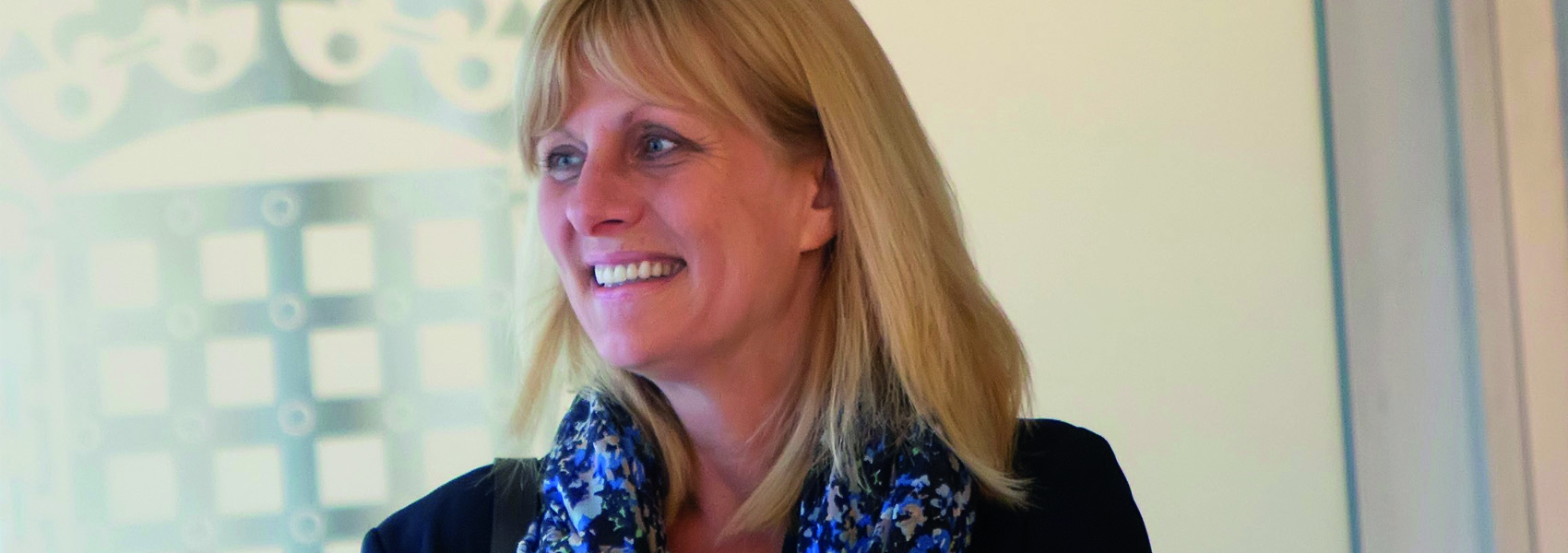



As Chief Executive of the National Institute for Health and Care Excellence (NICE), Prof Gillian Leng has gone from studying medicine at Leeds to leading the provision of guidance for healthcare professionals during the Covid-19 pandemic.
Every year, Prof Gillian Leng CBE (Physiology 1982; Medicine 1987; MD 1994) returns to Leeds to give a presentation to students in the lecture theatre where she spent many hours as an undergraduate medic.
As Chief Executive of the National Institute for Health and Care Excellence (NICE), she is keen for young medics to learn how to find and use good data to aid clinical decisions. She was therefore delighted that Leeds was one of the first universities to sign up to the NICE student champion scheme. The scheme improves the routine use of evidence-based information by future health and social care staff by providing students with additional training and support to become Evidence Search Champions.
Her own interest was sparked as an undergraduate in the 1980s. “In those days there were no systematic guidelines, so we learned from a combination of textbooks and from senior staff. There was definitely variation in practice, and I remember thinking, ‘They can’t all be right!’” said Gill.
Gill’s overall memories of Leeds are of “a sense of excitement and freedom, together with lots of opportunity”. The facilities were relatively new and the course was “fantastic”. She will never forget the experience of first dissecting a human cadaver. “There was a sense that we were doing something really exceptional. It was a core part of our learning experience.”
After finishing her house jobs at St James’s University Hospital, Gill moved to Scotland to work as a senior house officer in oncology and in A&E.
She then worked for several years on the epidemiology of vascular disease at the University of Edinburgh, when the Cochrane collaboration (now known as Cochrane) was being established. This international and independent non-profit organisation provides up-to-date, accurate information about the effects of healthcare available worldwide.
“I was able to get involved, not just in the peripheral vascular disease group, but also more broadly in the newly developing wider collaboration,” she said. It was an exciting opportunity, which really cemented her interest in evidence-based medicine.
Gill still dips her toe into research on implementing best practice, through a visiting professorship at King’s College London.
The main role of NICE is to improve health and wellbeing by putting science and evidence at the heart of health and care decision making. NICE produces clinical guidelines for frontline practitioners and provides advice on the cost-effectiveness of new drugs and other technologies. When Gill joined in 2001, her first task was to establish the new clinical guidelines programme, based in six royal colleges.
There are now more than 400 guidelines providing best-practice advice on the care for people with specific conditions. “The work we’ve done really does now underpin most clinical practice,” she said, although she is keen to point out that the guidelines are not rigid rules.
Gill was also responsible for setting up the NHS Evidence web portal, recently rebranded as NICE Evidence, which is widely used and trusted by practitioners. She established a NICE accreditation programme and the development of quality standards, which set out priority areas for improvement in health, public health and social care.
As CEO, she leads a team that is currently refining a five-year strategic plan. “NICE is a world-leading organisation with an internationally respected brand,” said Gill. “However, after 21 years, some things need to change.” One goal is to make guidelines “dynamic and living” so that they are always up to date. Another is to find fresh ways to assess new medical technology and to make better use of real-world data.
Gill took up her role as Chief Executive on 1 April 2020 – during the UK’s first national lockdown. When the pandemic hit, NICE changed its standard approach to produce rapid Covid-19 guidelines, commissioned by NHS England. “There was a huge need for advice for frontline practitioners on what they should be doing to manage patients with Covid,” said Gill. “We decided that we needed to do things differently, to be able to respond to the urgent need for guidance.”
There wasn’t time to appoint the usual formal committees so NICE rapidly established expert panels. And rather than the usual six-week consultations, they allowed a three-hour comment window.
“People were amazing,” said Gill. “We would get as many comments in that three-hour window as we would normally have received in a longer consultation period.”
NICE has also worked with partners to assess potential Covid-19 treatments, including existing drugs such as dexamethasone, by collating crucial evidence.
“We really took advantage of our international networks, so guideline developers, the Cochrane collaboration and other organisations have come together to share and pool recommendations and evidence, which has been brilliant,” said Gill.
The Covid-19 guidelines are regularly updated as new medical information emerges. “Developing them has been a real learning experience, illustrating how living, dynamic guidelines can work,” she said. “This is a model we want to adopt more widely for the future, which we are building into a new five-year strategic plan to be launched in April. This will reset and refresh NICE’s approach, enabling us to develop useful and useable guidelines in priority areas.”
Words
Dr Emma Davies (MSc Food Science 1996, PhD 2001) is a freelance science writer and editor.